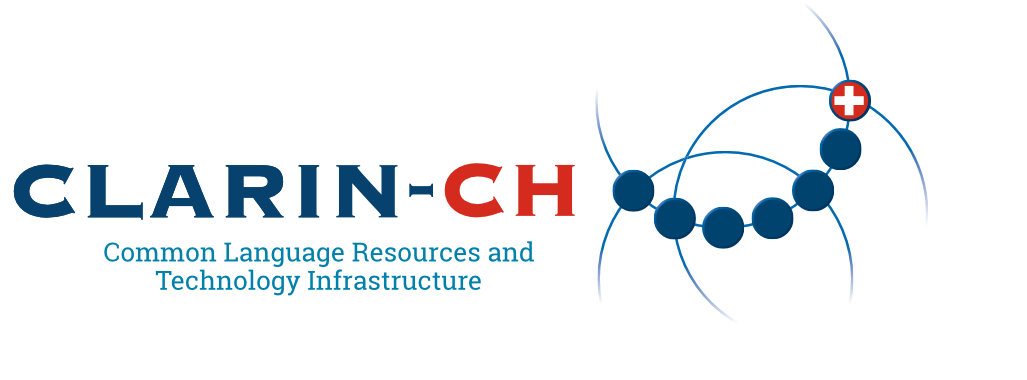Effective data management starts with the research design and involves planning ahead to encompass the entire data lifecycle. It is not only a necessary step in the research process, it is also a great benefit for you and the research community, if done right. Aligning data management practices with the FAIR principles and open data standards ensures transparency, accessibility, and the potential for broader collaboration within the research community.
Alongside, it’s valuable to address ethical and legal aspects early on to ensure compliance with relevant regulations. In principle, all CLARIN-CH institutions provide legal services and ethics committees, offering expertise to navigate complexities and establish sound consent mechanisms. In addition, the topic is being addressed by the CLARIN-CH working group on sensitive and personal data in the context of linguistics and social sciences to help researchers deal with questions that might come when working with language data.
Creating a Data Management Plan (DMP)
When receiving funding for a research project, researchers are required to submit a plan for research data management that is compliant with the FAIR principles. According to the SNSF, a data management plan should discuss the following topics:
- Data collection and documentation
- Ethics, legal and security issues
- Data storage and preservation
- Data sharing and reuse
It is crucial to include the resources and funding required for the implementation of the planned data management practices. The SNSF supports the preparation of data and their online storage with up to 10’000 CHF, on the condition that non-commercial service providers are used. SWISSUbase offers their data storing services for free. Other than the funding, resources such as the extra time required for careful data management and human resources should also be taken into account.
The DMP is meant to be used as a living document, i.e. it is good practice to periodically revise the data management plan throughout the research process. This can be done for example during project meetings held every six months, so that the plan becomes a documentation tool and a statement of quality assurance for your research data over the long term.
When dealing with sensitive data, special attention needs to be given to its organization and management. Several steps can be taken to ensure safe use of the data, i.e. a carefully drafted consent form and anonymization or de-identification of the data. More information on data protection, sensitive data and informed consent can be found on the following page: Data protection
Copyright issues should be addressed from the start: Who owns the copyright in the data? How can the data be shared, which kind of license is appropriate and are there any restrictions that might apply? If there are restrictions, how can we still make the data as FAIR as possible? To give an example, the data from the Swissdox@LiRI database cannot be shared directly due to copyright reasons. However, it is possible to share the queries that were used to download the data, and thus make it accessible for reuse. More information on copyright and Intellectual Property Rights issues can be found here.
Resources
The following resources may be helpful for researchers creating a data management plan:
- The Linguistic Research Infrastructure (LiRI) has published two data management plan examples. One illustrates a possible DMP for a language documentation project. The other is an example of a neuroimaging EEG project:
- The Swiss National Science Foundation (SNSF) provides a document with a list of questions that should be addressed in the DMP including good practices for each of them:
Further information from the SNF, including a checklist to identify FAIR data repositories, can be found in the DMP Guidelines for researchers.
The FORS Center has published a guide on “How to draft a DMP from the perspective of the social sciences, using the SNSF template”. It discusses each part of the DMP giving explanations and practical tips for SSH researchers applying for research funding in Switzerland.
A comprehensive guide on data management is offered by CESSDA, the Consortium of European Social Science Data Archives:
It was designed to help researchers make their research data FAIR and includes well-structured, detailed information for each step of the data lifecycle.
- Several CLARIN-CH institutions offer information and services that help with creating a DMP:
Let us know if your institution has a similar platform that could be useful for other CLARIN-CH members!
